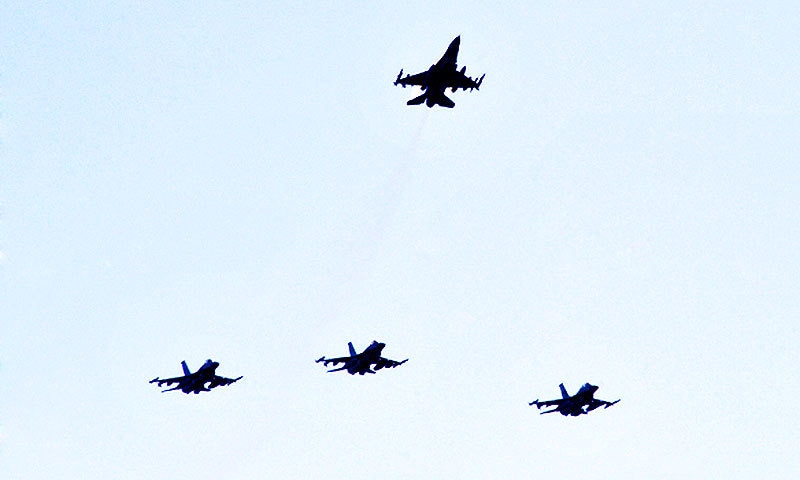“Royal Jordanian Air Force fighter pilot Lieutenant Muath al-Kasaesbeh ejected safely over Raqqah, Syria (territory held by ISIS), after his F-16 developed a technical malfunction while on a strike mission against the terrorists.”
This was the news we got on December 24, 2014, while stepping out for a routine training mission.
As fighter pilots, we knew Muath’s safe ejection from an uncontrollable fighter jet could not be cherished, for Muath had to eject behind enemy lines. And, this wasn’t a conventional enemy.
We knew his fate instantly.
Terrorists have no code of conduct or rules to fight — they will go to any extreme. The most feared happened on February 3, 2015 when the ISIS released a video of Muath caged, in an orange jump suit which was soaked in gasoline, while one militant lit a torch and then lit a line of fuel in the sand leading towards the cage.
That day, we lost another brother defending his motherland.
Soldiers do not fear death, they embrace it; they embrace it the day they take oath. Muath proved to what extent a soldier, a fighter pilot can go to in defending his/her country.
Hailing from Al Karak, a small town some 140 miles South of Amman, Jordan, Muath wasn’t just a Jordanian, he was a brother in arms to us — a symbol of courage and resilience.
From the East to the West, everyone now knows of this 26-year-old fighter pilot’s sacrifice. He, not only in his life proved his mettle as a fierce fighter, but in his death too, united us all in our resolve against terrorism.
Pakistan and Jordan enjoy cordial relations which date back to the very independence of the two countries. The Pakistan Air Force and the Royal Jordanian Air Force pilots train and are posted on mutual exchange programs undertaken by both the Air Forces.
It is for the same reason that the death of Muath al-Kasaesbeh was felt to the core in the hearts of Pakistanis in general and a PAF pilot in particular.
Prayers were offered for Muath and his bereaved family at our Air Bases, for the PAF, like the RJAF, is fighting the same menace of terrorism as a front-line force.
Muath’s death has only strengthened our resolve to not bow down to militants who abuse and escapade religion for their monstrous ambitions.
We offered our heartfelt condolences to Captain Muath’s family and the Kasaesbeh tribe in Jordan through his personal flying instructor at F-16, Lieutenant Colonel Faisal, flying with us in Pakistan.
Jordan’s King Abdullah, a pilot himself like his father, King Hussein, led from the front. Like any head of a sovereign nation must do, he cut short his visit to the US and rushed back to his people. Queen Rania too, joined Jordanians in the streets and walked with them holding vigils for Muath.
Jordan has vowed an “earth-shaking response proportionate to the magnitude of the tragedy of all Jordanians” to eliminate terrorism from its soil and strike back even harder.
Also read: Jordan warplanes strike IS after pilot murder
There have been reports and denials of King Abdullah gearing up and co-piloting an RJAF bomber jet, leading a strike against the ISIS himself. Nonetheless, just the mere notion has created ripples across the globe. What an indomitable leader of an indomitable nation, world leaders must take heed from this.
Muath’s No.1 Squadron flew a missing-man formation (a formation fighter pilots fly to honour their lost wingman, where four fighter jets set course for overhead in a V-formation and then No.2 pulls up abruptly into the skies indicating their wingman has ascended to the heavens) over his hometown on recovering from a strike against the ISIS.
 |
|
A missing-man formation. —Reuters
|
Muath’s death has renewed and reiterated Pakistan’s response in fighting against terrorism. And while we restate our resolution, let us remember Muath as a symbol of rejection from kneeling down to the terrorists.
Captain Muath al-Kasaesbeh, may you rest in peace. You fought well, comrade.



